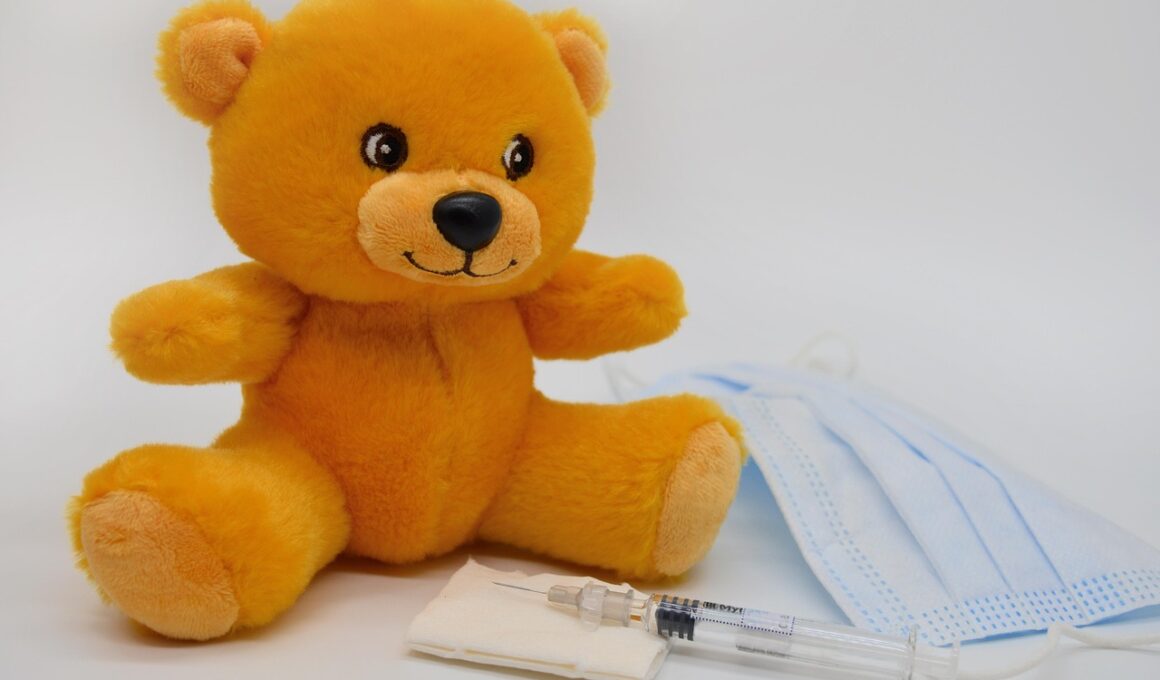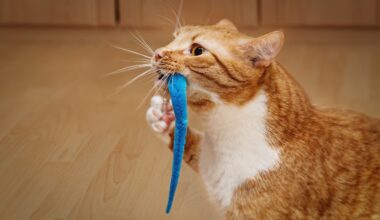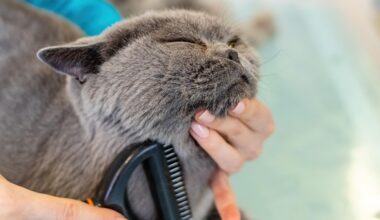The Impact of Vaccination on Feline Immunodeficiency Virus (FIV) Prevention
Vaccination has fundamentally transformed the approach to preventing feline diseases. One significant infection in cats is the Feline Immunodeficiency Virus (FIV), which severely impairs their immune system. Vaccinating against FIV can help protect cats from this virus by stimulating their immune systems to produce antibodies. This proactivity is essential, especially for outdoor cats or those in multi-cat households where the risk of exposure is greater. Although the vaccine does not guarantee total immunity, it offers vital protection that can reduce the likelihood of serious complications. It’s important for cat owners to discuss vaccination options with their veterinarians. Veterinarians provide insight into the specific risks that cats may face based on lifestyle, age, and health status. For optimal protection, it’s also crucial to ensure other vaccinations are up-to-date, as combined immunity can create a healthier feline. By raising awareness about the benefits of vaccination, more cats can live longer lives free from the tragedies associated with FIV. Ultimately, regular consultations with your veterinarian can enable effective vaccination strategies tailored to individual needs.
Understanding FIV and Its Risks
Feline Immunodeficiency Virus (FIV) is a viral infection affecting cats, primarily spread through bites and scratches. Understanding how FIV operates and its transmission routes is crucial for cat owners. Typically, FIV is found in outdoor cats that engage in fighting, as the virus is present in saliva. While FIV is not contagious like the common cold, once a cat is infected, they can live with the virus for many years before showing symptoms. Infected cats may experience a range of health issues such as dental problems, skin infections, and lethargy. In some instances, FIV can lead to secondary infections due to a weakened immune system. Preventing FIV primarily involves avoiding exposure to potentially infected cats, but vaccination remains a supplemental strategy. It is essential to remember that even a vaccinated cat can still contract the virus, albeit with fewer or milder effects. Regular veterinary checks and blood tests can help monitor a cat’s health status, allowing for early intervention if FIV is detected. Together, these practices reinforce the importance of vaccination and responsible pet ownership.
Vaccination plays a pivotal role in controlling the spread and impact of FIV. It is crucial for cat owners to recognize that vaccination does not replace other preventive measures. Responsible pet ownership includes keeping cats indoors or supervised while outside, spaying or neutering them, and avoiding cat fights. Vaccination can significantly improve a cat’s quality of life and longevity when combined with these practices. An effective vaccination schedule, as determined by a veterinarian, will ensure that cats receive their shots at appropriate intervals. The ideal age for starting the FIV vaccine may vary, so consulting a veterinarian can guide proper timing. Additionally, cats may require boosters to maintain immunity and protect against the disease in the long term. Owners of newly adopted cats should be transparent about vaccination histories, as it directly impacts the well-being of the household. The collective effort of the veterinary community and pet owners is essential in reducing FIV cases, making responsible vaccination decisions more crucial than ever. As awareness increases about the benefits of vaccination, cats around the globe can enjoy healthier, happier lives without the scourge of FIV.
The Connection Between Vaccination and Health
The relationship between vaccination and feline health is profound and multifaceted. Vaccination helps combat various diseases, including FIV, which can significantly compromise a cat’s immune defenses. It’s essential to comprehend that vaccinations, while protective, are also part of a broader health strategy. Routine veterinary care, which includes health check-ups and vaccinations, can enhance a cat’s overall immunity. One noteworthy aspect is that vaccinated cats are generally healthier and have fewer medical emergencies compared to those that are unvaccinated. Emerging health issues in FIV-positive cats can be managed more effectively when preventive measures are in place. Moreover, a routine vaccination schedule enables early detection of potential health discrepancies. This proactive approach allows veterinarians to mitigate complications associated with FIV or other related diseases swiftly. Always consult a veterinarian about the best vaccination practices tailored to individual needs. With proper care and vaccination, cats can enjoy significantly improved health outcomes. Vaccination remains a pivotal component in achieving long-lasting feline health and wellness, reinforcing the necessity for dedicated pet care.
Public awareness about vaccines and their importance in feline health is gradually increasing. Many cat owners still have concerns about vaccine efficacy and safety. Some may fear adverse reactions, yet these occurrences are generally minimal compared to the risks posed by untreated diseases like FIV. It’s vital for pet owners to stay informed about vaccine benefits and potential side effects, which are typically mild and short-lived. Regular vaccinations can immensely benefit both individual cats and public health by minimizing the spread of infectious diseases. Engaging with community resources such as pet health blogs and veterinary clinics can help dispel common vaccination myths. Sharing personal experiences and knowledge can also lead to a broader understanding of the importance of vaccination. Participating in local pet events or vaccine clinics can encourage more responsible ownership within the community, leading to healthier feline populations. Collaboratively, these actions contribute to a happier, more vibrant environment for our felines. Awareness is the first step to ensuring fewer cats suffer from preventable diseases. This ultimately allows cats to thrive with a better quality of life.
Future of FIV Vaccination Research
As research into FIV vaccination and prevention continues to evolve, there’s hope for more effective solutions on the horizon. Current FIV vaccines show promising results, yet scientists tirelessly explore ways to enhance their effectiveness. Innovations might include developing newer vaccines that provide longer-lasting immunity and require fewer booster shots. Additionally, researchers are investigating the potential role of gene therapy and more advanced immunization techniques tailored specifically for FIV. Increasing collaboration between veterinary schools, pharmaceutical companies, and animal health organizations could propel the quest for groundbreaking advancements. Understanding the intricacies of FIV and developing refined vaccines can significantly impact feline welfare globally. Beyond FIV, advancements in vaccination research could potentially expand protections for many other feline diseases. Innovations could align with comprehensive health strategies, encompassing trends in feline nutrition, lifestyle, and preventive healthcare. These efforts unite the goal of achieving optimal health for all cats, reducing the burden of disease prevalence. With advancements rapidly changing, the prospect for an even healthier feline future seems attainable. The rise of tailored vaccination could ultimately transform the quality of life for many cats worldwide.
In summary, the importance of vaccination in preventing Feline Immunodeficiency Virus cannot be overstated. For cat owners, the benefits of ensuring vaccinations are effectively integrated into the care routine are clear. Education, collaboration with veterinarians, and responsible ownership create a solid foundation for keeping cats healthy. Vaccination is a proactive strategy that minimizes the likelihood of FIV transmission and protects individual cat health. Taking part in vaccination programs contributes positively to the wider feline community, reinforcing the necessity of preventative measures. Ultimately, adopting a comprehensive approach to feline care, combining vaccination, regular check-ups, and healthy lifestyles, ensures optimal outcomes for our furry companions. By nurturing awareness among cat owners about the roles vaccinations play, we can enhance the lives of cats everywhere. Staying informed, understanding vaccination schedules, and responding to medical advice significantly contribute to feline health and longevity. The journey towards reducing FIV prevalence continues, driven by scientific advancements and dedicated cat guardians. With collective efforts, the future holds the promise of healthier lives for felines around the globe.
The essential nature of vaccination in enhancing feline health and preventing diseases cannot be doubted. Vaccination is a cornerstone of pet healthcare that protects not only individual cats but also the larger feline population. Ethical responsibility towards promoting health extends to ensuring that all cats receive timely vaccinations, contributing to the broader goal of disease control and prevention. Vigilance is required to monitor community feline health metrics as the effects of vaccinations ripple through cat populations. Moreover, future innovations in vaccination technology and protocols hold immense potential to reduce FIV and other diseases. Ensuring that vaccines are affordable and accessible to pet owners will play a crucial role in achieving high vaccination rates. As public understanding of vaccination benefits improves, more cat owners will be inclined to participate actively in vaccination programs. When communities are educated about best practices in vaccination, it limits the spread of serious diseases like FIV, creating a healthier future. Advocacy for ongoing research into vaccines, coupled with public education campaigns, will empower more cat owners to make informed decisions regarding their pets’ health. Together, these efforts will help foster a culture of proactive health management for all felines.


